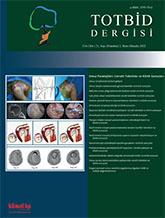
Most shoulder impingement is degenerative or chronic. Patients typically experience pain with overhead tasks during daily activities and discomfort at night. Diagnosis is led by history and relevant shoulder tests of physical examination, but it should be supported with proper imaging. Conservative measures such as physiotherapy, subacromial cortisone injection and oral anti-inflammatory medications are often initially applied for treatment. When symptoms persist, surgical intervention via open or arthroscopic means becomes a featured option. Arthroscopic subacromial decompression and debridement has become one of the most common orthopaedic procedures for this manner. For prognosis, surgery provides improvement in pain, function, and quality of life. However, there is moderate evidence that surgical treatment is not more effective than conservative treatment strategies for long term results of patients suffering from shoulder impingement syndrome. This review summarizes the current treatment options and clinical outcomes of shoulder impingement.